
How to Select a Replacement Nozzle for your Pressure Washer (Color matching isn’t the only factor!)
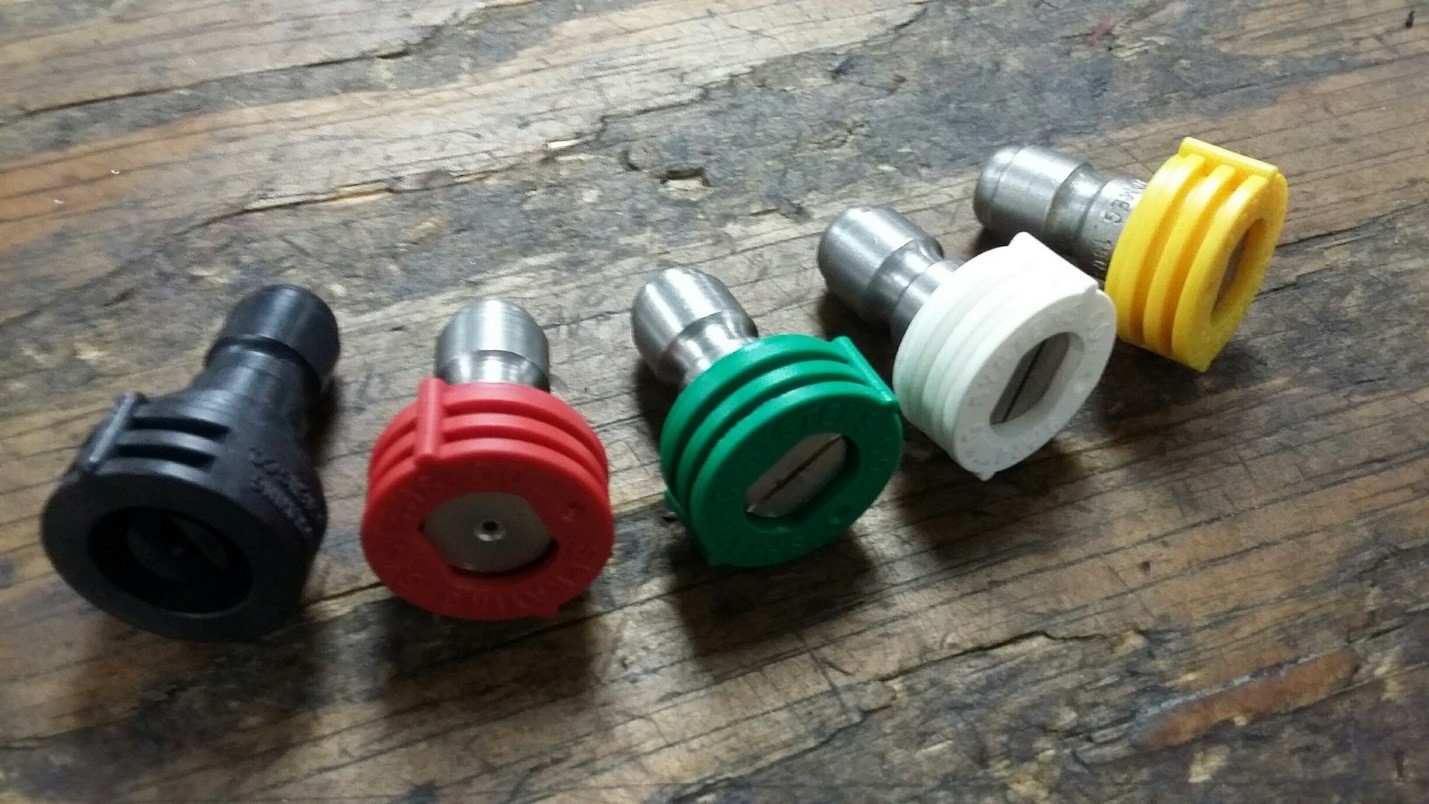
It’s time for spring cleaning! Pressure washers (also known as power washers) can be a low-cost, high impact way to make industrial cleaning faster and easier. Unfortunately, purchasing the wrong replacement nozzle is a common and often costly mistake. Selecting the wrong nozzle can lead to poor machine performance or even machine failure. Moreover, if the wrong nozzle degree is selected, the surface that is being washed could be damaged.
Selecting the correct nozzle does not need to be a guessing game. You will need to know two important pieces of information in order to select the correct nozzle for your project:
1. What is GPM (Gallons per minute) rating of your pump? What is the PSI (Pressure per square inch) rating of your pressure washer?
The GMP rating information is generally found on a metal plate directly on the pump, but it can also be found in the pump’s user manual. If you no longer have the pump’s user manual, refer to the manufacturer’s website. Once you know the GPM and PSI of your pump, you can select the correct nozzle orifice size.
The orifice size of the nozzle determines the operating pressure of your machine. As a rule of thumb, the smaller the orifice, the greater the restriction of water flowing through the machine. This causes the pressure to increase.
- Choosing a nozzle with too large an orifice will reduce operating pressure.
- Choosing a nozzle with too small an orifice will limit water flow and possibly create an excessive load on the machine.
Use the table below to select the properly sized nozzle for your machine.
Determine the nozzle size by matching the operating pressure (PSI) of your machine to the gallons per minute (GPM).
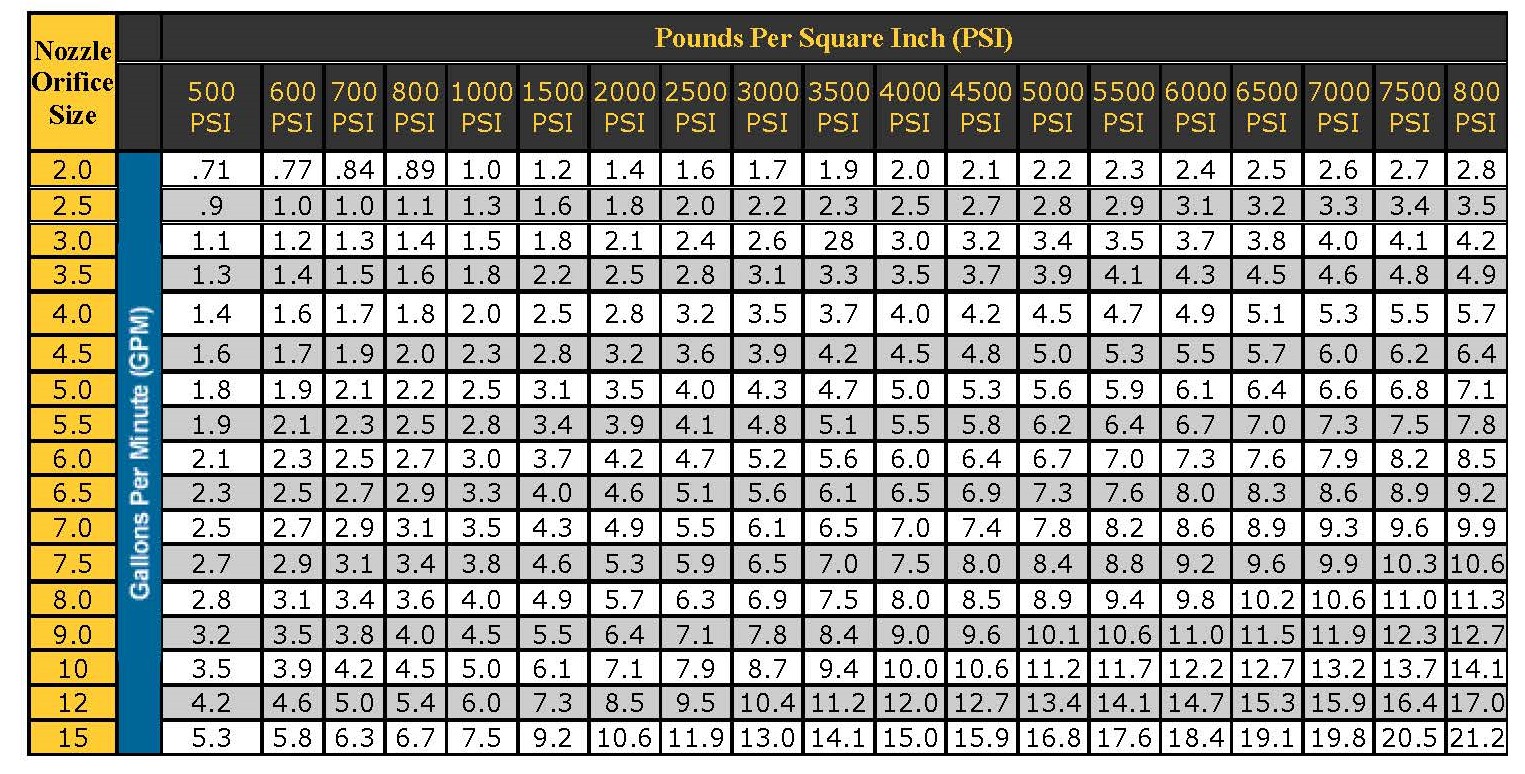
For example, if the PSI of your pump is 2500 and the GPM is 2.8, then the nozzle orfice size you will need is 3.5.
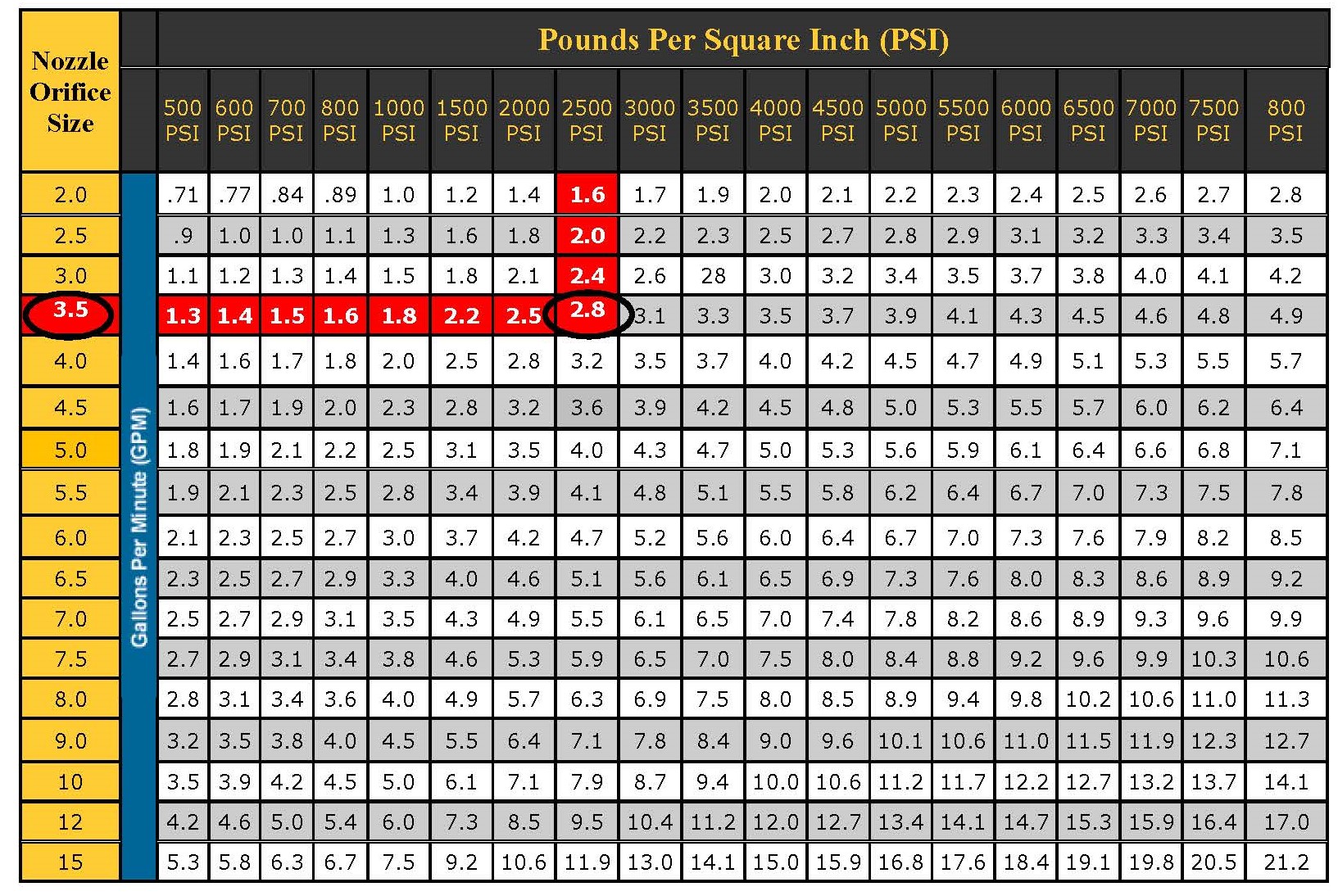
Now that you know which nozzle orifice size you will need for your pump; the next step is to determine the correct degree of the spray pattern. Pressure washer nozzles are color coded by spray pattern degree. To select the correct nozzle spray pattern degree, you need to answer this question:
2. What are you pressure washing?
There are 5 standard nozzle degrees. Each degree is coded by color. The smaller the degree the more concentrated (powerful) the water stream will be. The chart below outlines the common uses of each nozzle degree. It is important to select the nozzle with the degree of spray pattern that is most appropriate for your particular project. Selecting a nozzle degree that is too powerful for your application can damage surfaces. If you have specific questions about how powerful of a degree spray pattern, you should use for your project be sure to seek the help of an expert such as a sales representative.
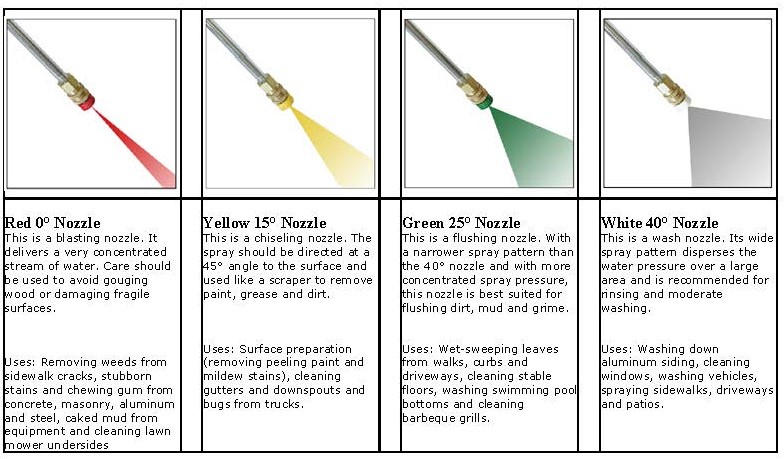
Note: Black nozzles are low pressure nozzles and are for use with cleaning agents only.
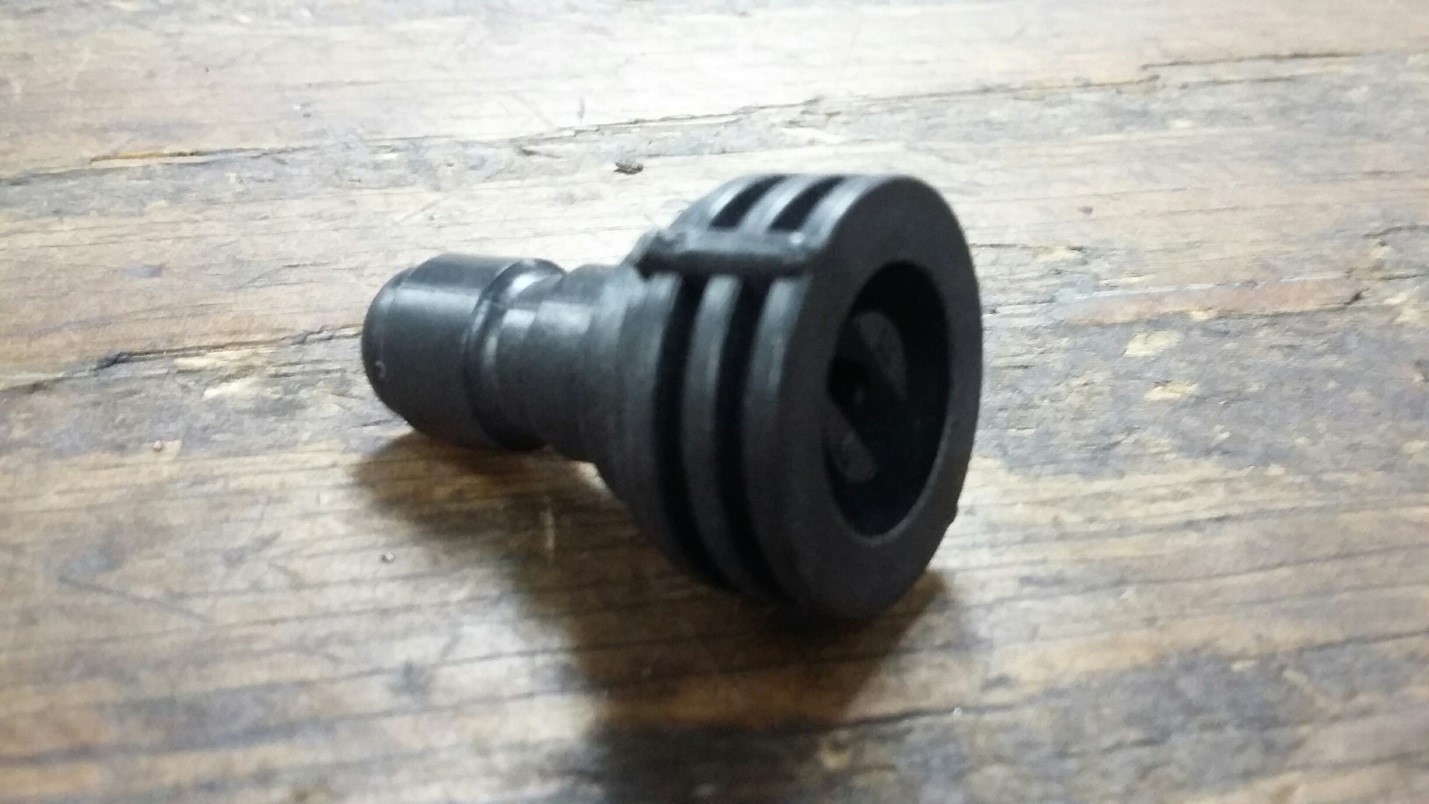
To select your replacement, choose the nozzle of the correct orifice size and spray degree for your project. Continuing with our example from above, if you have a pump with a 2500 PSI and 2.8 GMP then you will need a nozzle with a 3.5 orifice size. If you plan on pressure washing the bottom of your swimming pool then you will need a Green 25 degree nozzle with an orifice size of 3.5.
Selecting the correct nozzle for your pressure washer is only one important factor in completing a safe and successful project. Selecting the correct hoses, spray gun, and other accessories is also critical.
How can we help you become the next pressure washer hose and accessories expert?
Contact us or call 800-669-9650 to speak with a member of our customer service team at any of our 11 locations (Knoxville, TN; Marietta, GA; Orlando, FL; Charlotte, NC; Little Rock, AR; Fort Worth, TX; Benton, IL; Madisonville, KY; Princeton, WV; Birmingham, AL; Calvert City, KY).
